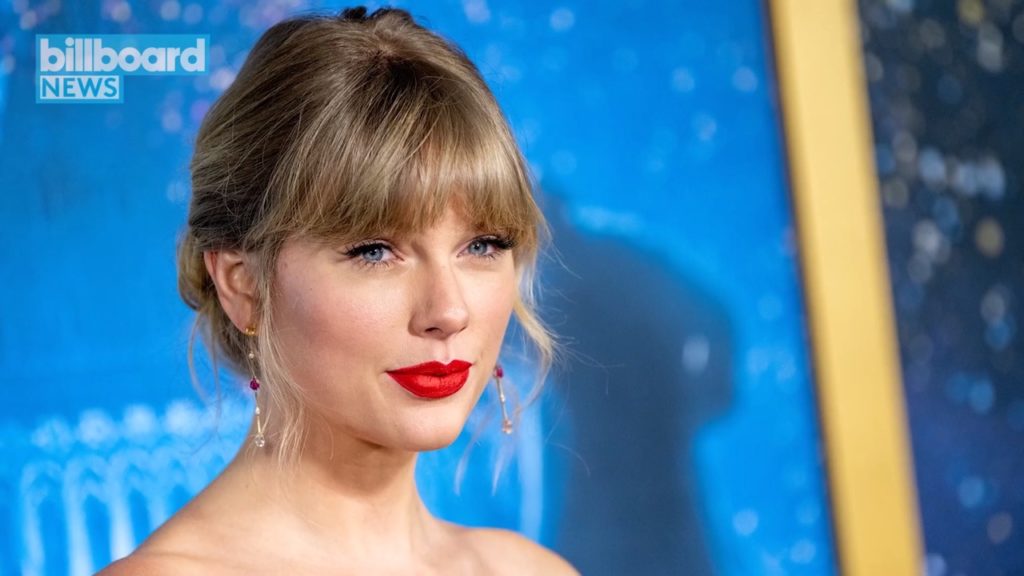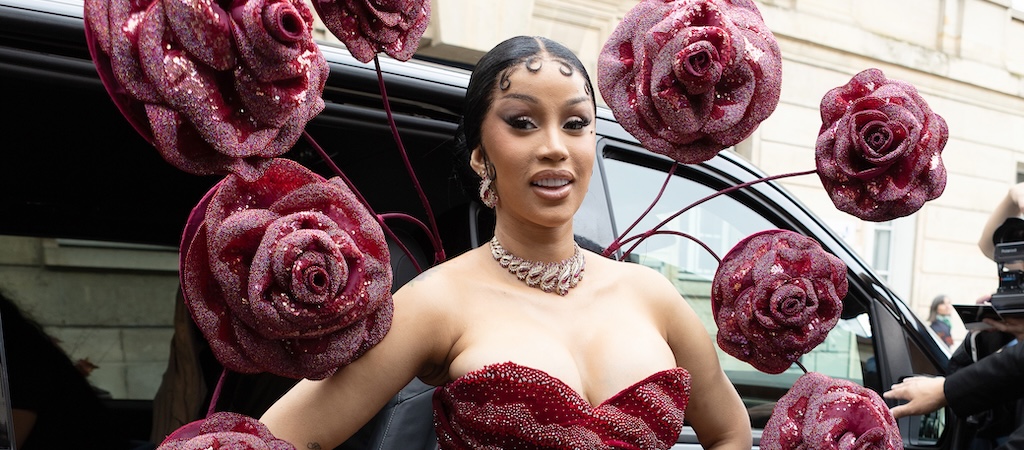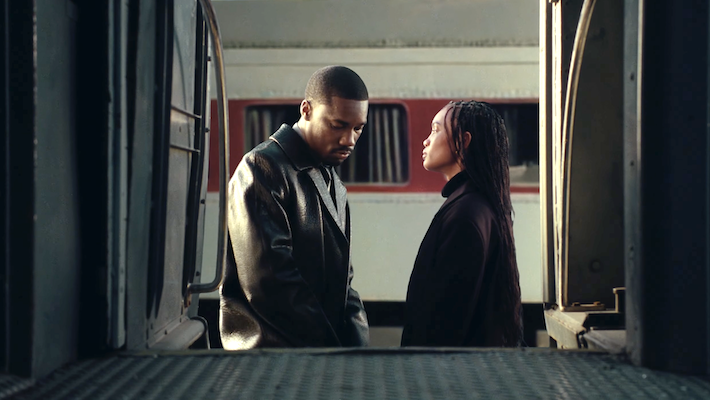You may have heard by now that Taylor Swift released a new album two Fridays ago (July 24) — the stripped-down singer/songwriter set Folklore — with less than a full day’s notice. This week, the early commercial returns for the acclaimed set are in, and if Swift’s new set suffered from any lack of promotion, the numbers certainly don’t show it.
Folklore debuts atop the Billboard 200 albums chart this week with 846,000 equivalent album units moved — the most first-week units for any album since her own Lover posted 867,000 in Sept. 2019. And with lead single “Cardigan,” Taylor notches her first Hot 100 No. 1 single since “Look What You Made Me Do” in 2017, as well as her first to debut at the chart’s apex since “Shake It Off” in 2014.
How was Taylor able to achieve such resounding first-week results? And what does it say for the future of pop album promotion? Billboard staffers answer these questions and more below.
1. Obviously 846,000 is a stratospheric number for first-week units in 2020. Do you think the resounding commercial reception for Folklore says more about the album itself, about the set’s surprise-release strategy, or about Taylor Swift’s sheer commercial indomitability?
Jason Lipshutz: I think it’s a perfect storm of all three. Obviously Taylor Swift still has gigantic commercial appeal that will guarantee a sizable first-week number regardless of circumstances, but I don’t think this album approaches 846,000 equivalent album units if it had sounded like Lover Pt. 2, or even if it had been given a traditional rollout. The surprise drop and sonic change-up of Folklore, combined with Swift’s superstardom, resulted in piqued curiosity from casual fans, while providing an unexpected treat for the diehards.
Joseph Lynch: It’s not the album, per se: I don’t think that sky-high number indicates there’s an underserved audience champing at the bit for more folk-flavored music. I think it’s a sign of Swift’s rock-solid, if not necessarily growing, fanbase, coupled with the fact that in lockdown, there’s not a whole hell of a lot else to get excited about. A surprise album from an A-lister is gonna get attention.
Mia Nazareno: Is it cheating to say all three? Also, if I may add a fourth reason: She capitalized on the timing of the pandemic, when everyone is at home trying to mimic real life on the Internet. One of the few remaining activities that hasn’t been cancelled is listening to music — Taylor was attuned to that, and it paid off for her.
Andrew Unterberger: I think it shows most of all that a surprise and/or rollout-less release really does give veteran best-selling artists a certain degree of safety in terms of their opening numbers. Think Eminem’s Kamikaze or Kanye West’s Jesus Is King — neither exactly ranks among their respective artists’ most acclaimed or fan-beloved albums, but both had blockbuster first weeks largely because listeners of all kinds just kinda had to know what the deal with them was. Folklore also has the benefit of near-universal critical and fan approval, which certainly helped it maintain listenership throughout its first week, but if the set had the same type of advance rollout that Lover did, I’d bet its numbers would be noticeably lower.
Denise Warner: Can it be all three? It’s a great album that drummed up a ton of excitement immediately and she is still the biggest pop star in the world.
2. The downbeat, understated “Cardigan” is obviously pretty unusual for a Hot 100 No. 1. Given that Taylor Swift has taken some criticism on her past few albums for lead singles that weren’t necessarily representative of the albums they advanced, how effective do you think “Cardigan” is either as a lead single or as a reflection of Folklore on the whole?
Jason Lipshutz: “Cardigan” sneaks up on you, beginning as this understated, imagery-soaked indie-rock track but then swelling into one of the bigger and more emotionally bare moments on Folklore. The fact that it’s way more muted than previous lead singles like “ME!,” “Look What You Made Me Do” and “Shake It Off” isn’t surprising given the more subtle shades Swift uses on the new album, but “Cardigan” works as a focus track because it represents the tone of the album while containing some of its most effective hooks. It’s not traditional pop radio fare, but it gets stuck in your head anyway.
Joseph Lynch: “Cardigan” is a surprisingly accurate representation of the album as a whole. I think the album’s sonic cohesiveness speaks to the fact that this feels like an album released for the love of the craft, with few commercial expectations (despite its huge early success). There’s no song that feels crafted to be the “pop hit,” because that’s clearly not the aim with this album. Which is ironic, since “ME!” — which was clearly aimed at topping the Hot 100 — hit No. 2, and now this quiet meditation soars to No. 1 easily. Never underestimate the power of a good sweater.
Mia Nazareno: I actually think “Cardigan” is a great teaser for the rest of the tracks on the album. Judging from how many of my non-Swifty friends have shared it on their Insta stories, the lead single does a great job at piquing the interests of listeners beyond her loyal fanbase.
Andrew Unterberger: I don’t expect “Cardigan” to really provide much of a late push for Song of the Summer honors or anything, and I wouldn’t be surprised if a month from now it was out of the Hot 100’s top 10 altogether. But I do think it’s a good choice of lead single, just because the singles from this project clearly aren’t as load-bearing as they were on previous releases, and because “Cardigan” does demonstrate what the album does well: vivid-yet-mysterious songwriting with delicate production and piercing performance.
Denise Warner: I want to defend her lead single choices here. “Tim McGraw” is certainly representative of Taylor Swift as a whole — the album itself and her artistic ethos. The same goes for “Love Story” and “Mine.” Now, once you hit “We Are Never Ever Ever Getting Back Together” and “Shake It Off,” I won’t disagree that you wouldn’t understand the tenor of those albums from their lead singles. But they are smashes for a reason. Now, we come to what may have been missteps. “Look What You Made Me Do” and “ME!” There were certainly better songs from Reputation and Lover, but we can’t all be perfect all of the time.
As for “Cardigan,” it sets a lovely tone for Folklore that certainly fits with the rest of the offerings, but it’s hard to categorize it as a lead single that would set expectations — because it wasn’t the first song I listened to. (That would be “The 1” since it was … first on the album.)
3. Every Taylor Swift album has its deeper fan favorites. Which Folklore album cut is the one you think you’ll end up cherishing the most?
Jason Lipshutz: Give me “Invisible String,” the best song on Folklore and a legitimate lump-in-your-throat love song constructed upon an intricate Aaron Dessner arrangement and some of the most evocative songwriting of Swift’s career. If I hadn’t gotten married five years ago, this song would have played during our wedding. It’s that good!
Joe Lynch: “August” is my favorite on the album; I love the bouncy up-down thing she does with her vocals on the chorus. But I’m also gagging over “Betty” and “This Is Me Trying,” the latter of which demonstrates she could have just as easily been an acclaimed moody indie singer-songwriter, had that been the goal of this inordinately talented artist.
Mia Nazareno: Ah, that’s a hard one! But, I think future me will keep revisiting “Invisible String.” As someone who’s been a self-proclaimed Swiftie for nearly 15 years now, I first got hooked on her songs about boys, which has evolved from “Fifteen,” to “You Belong With Me,” and finally, to “Invisible String.” It almost feels like each song connects to each other with one song only existing because of the previous one — almost like, well, an invisible string! Her latest love song feels a lot like growth. As I’m closer to 30, it’s pretty amazing that she can still put out a butterflies-inducing love song.
Andrew Unterberger: I’ll take just about anything from the mid-album run of “Mirrorball” to “This Is Me Trying,” particularly those two poles. It showcases a Taylor I’d never even considered as a possibility: gauzy ’90s alternative Taylor, a half-step from dreampop and as alluring as that possibility would suggest.
Denise Warner: You’ll have to ask me in a few years for a definitive answer. But right now, it’s between “Betty,” “Invisible String,” and “The Last Great American Dynasty” — all for different reasons. “Betty” because it harkens back to her country roots; “Invisible String” almost purely for the line “cold was the steel of my axe to grind, for the boys who broke my heart”; and “Dynasty” because she does in one song what she (mostly) successfully did with the entirety of Reputation — taking back the “bitch pack” narrative and making it her own.
4. While the wintry “Cardigan” certainly has an appropriate sound for its title, it’s not exactly the most appropriate fit for early-August listening. Recommend another song that’s named after (or prominently features) an article of clothing that you think might make for a better summer soundtrack.
Jason Lipshutz: I mean… does Migos’ “T-Shirt,” an incredible song that’s less about summertime fashion and more about cocaine pricing, count here?
Joe Lynch: I’m going with the Royal Teens’ 1958 smash hit “Short Shorts” — because in quarantine, there’s been nothing to stop me from wearing my treasured cut-off jean shorts as often as I want.
Mia Nazareno: It would be too easy to suggest a certain song that references “Daisy Dukes, bikinis on top.” Forgoing the traditional answers, I’m going with the wildcard that is Taeyang’s (of Big Bang fame) “Wedding Dress.” But real talk though, the K-pop track is the first song I recommend to peeps who wanna dip their toe into the Asian pop scene. It’s catchy, ages well, and the music video featuring Taeyang’s leading lady marrying someone else hurts so good. And there’s something about summer and weddings that just makes sense.
Andrew Unterberger: Let’s go semi-literal here with Animal Collective’s art-pop mini-masterpiece “Summertime Clothes,” whose lyrics nail the heat-and-sleeplessness-induced mania of the middle months better than any other song I’ve ever heard (“A voice from the clock says, ‘You’re not gonna get tired’/ My bed is a pool and the walls are on fire”).
Denise Warner: The first song that comes to mind is “Itsy Bitsy Teeny Weeny Yellow Polka Dot Bikini” by Bryan Hyland. It’s certainly a better uniform for this East Coast heat. But perhaps a more contemporary option would be 5 Seconds of Summer’s “She Looks So Perfect” since the chorus goes “She looks so perfect standing there in my American Apparel underwear.” Then there’s the Kenny Chesney standby “No Shirt, No Shoes, No Problem.” Although maybe for these times, Iggy Pop’s “Mask” is the best choice.
5. Before Folklore, Taylor Swift had long been a proponent of the traditional album release model, with plenty of advance singles, promotional appearances, and retail partnerships. Does the fact that she’s now found such success and acclaim with Folklore signal the death knell for the extended album rollout — either in Swift’s own career, or for pop stars in general?
Jason Lipshutz: Think of it less as a “death knell” and more of a natural progression of the surprise album drop that dates back years — to Beyonce’s self-titled album release in 2013, or way back to 2007, when Radiohead debuted the pay-what-you-want digital model. The large majority of artists still abide by the traditional rollout format, and will likely continue to do so, but with Swift’s mega-successful surprise release, more A-listers will likely continue down that path as well.
Joe Lynch: It’s tough to take this album’s rollout and success as a signal of anything. Swift is such an anomaly; most pop stars of her caliber have had their commercial ups and downs in a way she really hasn’t, so I’d say it’s risky to see the success of folklore as a model for anyone without her track record. And, goes without saying, we’re in a pandemic – a surprise album is likely to get more attention when people are stuck at home vs. running around living their lives.
Mia Nazareno: I think she’ll still dabble in the extended album rollout model to some degree. As we’ve seen in the wake of Folklore’s success, she doesn’t need all the bells and whistles to sell almost a million units, but I think there’s something special about counting the days until her album release — almost like counting the days until Christmas! Lots of her memorable Internet performances immortalized on YouTube (like this one!) have been in preparation for an upcoming album, so I think she’s in on the fun, too.
Andrew Unterberger: I don’t think long pop rollouts will disappear overnight, but I do think it’ll mark an important pivot point in pop star promo history. When an album wins as much as Folklore is winning this week — and some more literal wins may very well be in the cards for the set come awards season — everyone pays attention. And when it comes from an artist like Taylor Swift, who’s spent so much of her career setting the standard for the pre-release album campaign, it’s hard not to notice the sea change at work.
Denise Warner: Ever since Beyoncé released Beyoncé in 2013, the game changed for the traditional album rollout. But despite that success, even she has mostly backed off the complete surprise drop. We had some inkling Lemonade was coming. There were rumors swirling for months before Everything Is Love appeared — though that could have come from her propensity for surprises in the first place. And with her latest visual project, she gave us full warning.
I imagine Taylor will experiment going forward, especially after the praise Folklore has earned her — but I don’t think she’ll completely forgo some traditional parts in the future. Besides, these unprecedented times call for unprecedented actions. Who knows what will happen in the coming years?



